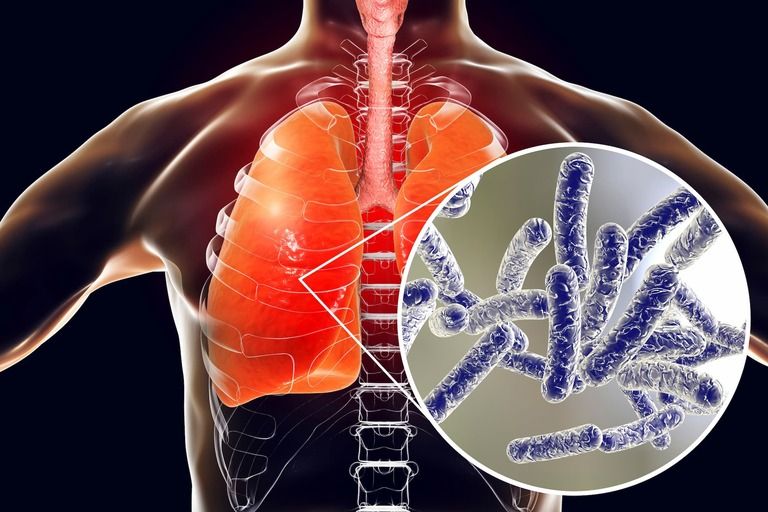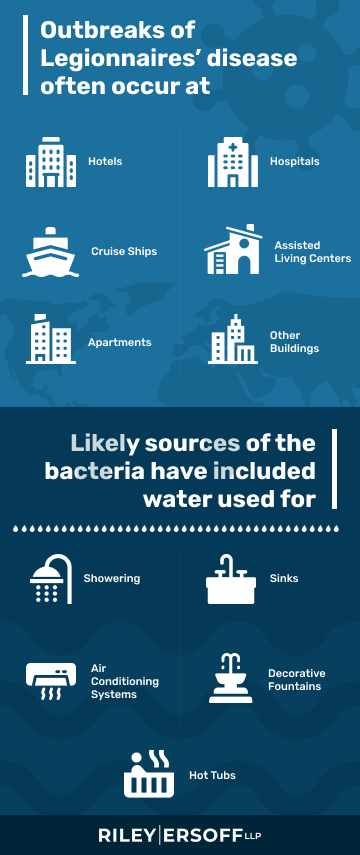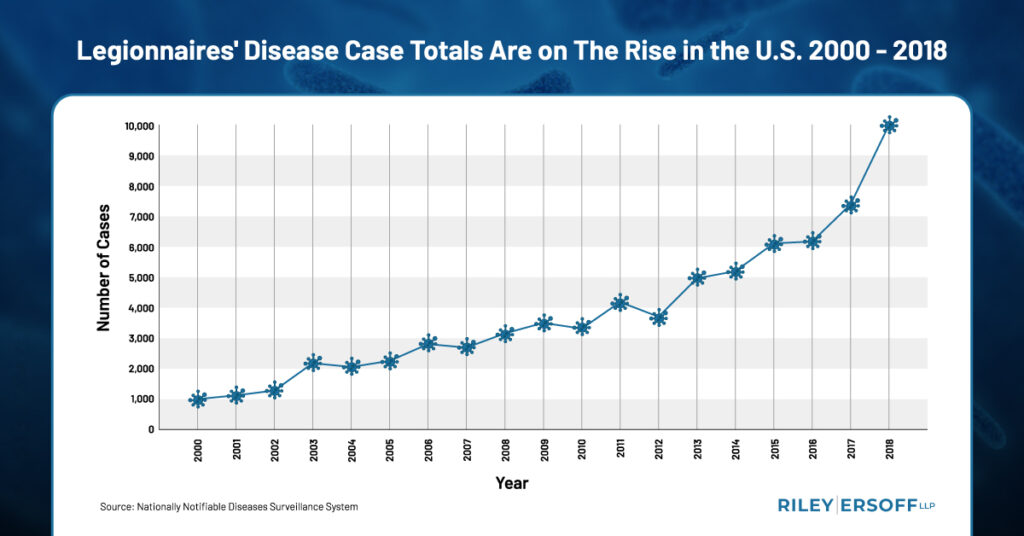
Specialized Legionnaires Disease Lawyer
Legionnaires’ disease lawyer Victoria Ersoff has handled over 1,000 Legionnaires’ disease claims nationwide. Victoria is nationally known as the “go-to” Legionnaires’ disease attorney and is an experienced litigator with over 28 years of experience on both sides of the courtroom.
If you contracted Legionnaires’ disease and have questions, give Victoria a call 866-983-6915.
Don’t Let Legionnaires’ Disease Destroy Your Life or the Life of a Loved One
If you or a member of your family has contracted Legionnaires’ disease, it is crucial that you hire the right Legionnaires’ attorney to make sure that you are properly compensated for your injuries, harms, and losses.
Riley | Ersoff LLP partner and attorney Victoria L. Ersoff has handled over 2,000 Legionnaires’ claims in California and across the United States. Victoria’s detailed knowledge of the cause and effect of Legionnaires’ disease and her experience in successfully litigating these extremely complex cases is unmatched.
Victoria and the team of lawyers at Riley | Ersoff LLP has over 50 years of experience as trial attorneys and know the area of toxic torts like the back of their hands. No one can fight for your rights like the attorneys at Riley | Ersoff LLP.
Symptoms of Legionnaires’ Disease
Legionnaires’ disease is a severe and potentially fatal form of pneumonia caused by legionella bacteria. Symptoms typically present between 2 and 14 days after exposure to the bacteria, but it can take longer. The symptoms of this potentially deadly disease can include:
- Fever,
- Cough,
- Chills,
- Shortness of breath,
- Chest pain,
- Headaches,
- Gastrointestinal issues, including nausea, vomiting, and diarrhea,
- Muscle aches, and
- Confusion.
Although Legionnaires’ disease can be treated with antibiotics, sadly, each year, between 8,000 and 18,000 people are hospitalized with Legionnaires’ disease and about 15 out of every 100 people die from it. For victims who contract Legionnaires’ disease during a healthcare facility stay, approximately 1 out of every 4 pass away. Anyone is at risk of contracting Legionnaires’ disease, however, certain people are especially at risk, including the following:
- People 50 years and older;
- Current or former smokers;
- People with cancer;
- People with weakened immune systems;
- People with a chronic lung disease such as emphysema or COPD; and
- People with underlying diseases such as kidney failure, liver failure or diabetes.
If you believe you were exposed to Legionella and develop symptoms, contact your local health department so they can investigate. Be sure to tell them whether you spent any nights away from home in the last 14 days.
Case Results
Reviews
Practice Area
Common Outbreaks & Contracting Legionnaires’ Disease

Outbreaks of Legionnaires’ disease often occur at hotels, hospitals, cruise ships, assisted living centers, apartments, and other buildings. Likely sources of the bacteria have included water used for showering, sinks, air conditioning systems, decorative fountains, and hot tubs.
If you or a family member has been diagnosed with Legionnaires’ disease, there are several things that you need to do to protect your rights. You should immediately contact your local and state public health department since Legionnaires’ disease is a reportable illness. Make sure that you report any nights you stayed away from home in the two weeks before your symptoms started.
You should prepare a detailed log of all locations you visited and all activities you participated in the two weeks prior to the onset of symptoms. This will help pinpoint and eliminate potential water sources. You should also prepare a detailed timeline of all of the symptoms that you experienced, including when each symptom started.
Once the source of your Legionnaires’ disease has been determined, testing of the water supply needs to be performed. Most local health departments will only perform an investigation, including testing, when there are two reported cases. If the health department refuses to perform an investigation, including testing, then it is important that make arrangements for someone to perform this testing on your behalf.
Occupational Health and Safety Recommendations
To protect against Legionnaires’ disease in occupational settings, you can take the following health and safety measures:
- Risk Assessment: Conduct a thorough risk assessment to identify potential sources of Legionella bacteria, such as cooling towers, hot water systems, or misting equipment.
- Water Management Plan: Develop and implement a comprehensive water management plan to control Legionella growth. This plan should include regular monitoring, maintenance, and cleaning of water systems.
- Temperature Control: Maintain appropriate temperatures in water systems to inhibit Legionella growth. Hot water should be stored and distributed above 60°C (140°F) and cold water below 20°C (68°F).
- Disinfection Procedures: Implement appropriate disinfection procedures, such as chlorination, to control Legionella in water systems. Follow manufacturer guidelines and applicable regulations for the proper use of disinfectants.
- Training and Education: Train workers on the risks associated with Legionnaires’ disease, the importance of following safety protocols, and how to recognize and report potential hazards or symptoms.
- Monitoring and Testing: Regularly monitor and test water systems for Legionella bacteria. This includes collecting samples, analyzing them in a laboratory, and taking necessary corrective actions if contamination is detected.
Remember that specific occupational health and safety measures may vary depending on the nature of the workplace and the applicable regulations in your region. It’s crucial to consult with local authorities and experts to implement the most effective strategies for Legionnaires’ disease prevention in your specific occupational setting.
Damages in a Legionnaires Disease Lawsuit
If a vacation, trip away from home, hospital, hotel, or other stay results in Legionnaires’ disease, you might be entitled to damages. Compensation available in Legionnaires’ disease cases varies depending on the facts and circumstances of each case but commonly includes money for the following:
- Medical expenses, including costs for hospitalization, prescription medication, doctor visits, long-term care, and tests such as x-rays and MRIs;
- Current and future lost wages if you are unable to work because of your illness;
- Damages for pain, suffering, and emotional distress;
- Damages for permanent disabilities and complications;
- If a loved one dies as a result of Legionnaires’ disease, surviving family members may be entitled to compensation for burial and funeral costs; and
- In rare cases, if the responsible party’s negligence was particularly egregious, a court can award punitive damages to punish the negligent party and deter similar future behavior.
If you believe you have a Legionnaires case, contact now a Legionnaires’ disease attorney who understands Legionnaires’ disease law and can help you investigate your potential claim. An experienced attorney can help protect your legal rights and help you build a successful case.

Contact a Specialized Legionnaires’ Disease Lawyer Today
It is critical that you contact a lawyer experienced in handling Legionnaires’ disease claims as soon as possible to discuss your case and to determine if immediate action needs to be taken to preserve evidence and protect your rights.
The lawyers at Riley | Ersoff LLP want to make sure that you and your family are protected in the event that you or a loved one is harmed by Legionnaires’ disease as a result of the negligence of some careless landlord, hotel operator, hospital, assisted living facility, cruise ship owner or other business.
We spare no cost to investigate and litigate the firm’s Legionnaires’ disease cases and will do everything possible to get you the compensation you need to rebuild your life and the lives of your loved ones. Contact us online, or call us at 866-983-6915. We can help.
